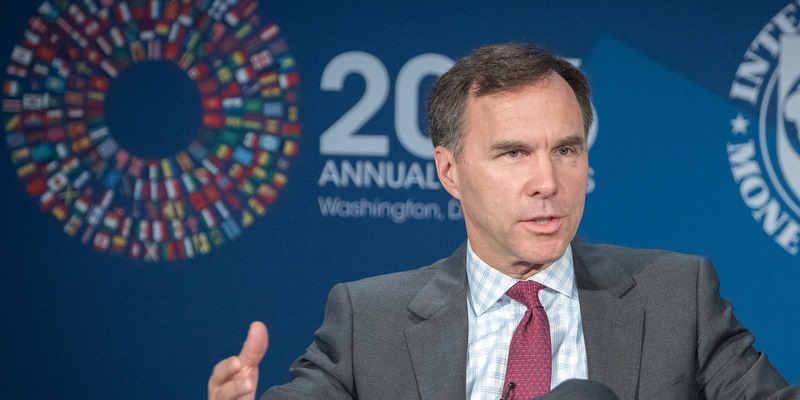Budget 2019 underscores Trudeau government’s economic delusion

Over the past three-and-half years, this federal government has continued to claim that its fiscal policies have spurred economic growth. Last week’s federal budget continued that trend. The reality, however, is much different.
Predictably, the 2019 budget was titled “Investing in the Middle Class.” In fact, in his budget speech, Finance Minister Bill Morneau even noted, “The title should come as no surprise.” After all, in 2016 it was “Growing the Middle Class.” In 2017, “Building a Strong Middle Class.” And in 2018, “Equality + Growth: A Strong Middle Class.”
But what does “Investing in the Middle Class” actually mean?
According to Minister Morneau, it means “good, well-paying jobs today” and “a strong country, and a strong economy.” This is quite reminiscent of his first budget speech when he stated, “What the Canadian middle class needs most is strong economic growth.” And again, according to Minister Morneau, his government has delivered. “And Mr. Speaker,” he said Tuesday. “our economy is doing very well.” Good rhetoric to be sure, but it doesn’t reflect reality.
Here’s what Statistics Canada noted on March 1, 2019 when it released its economic results for the fourth quarter of 2018: “Growth in real gross domestic product (GDP) slowed to 0.1% in the fourth quarter, the slowest pace since the second quarter of 2016.” It went on to add, “Overall business investment in non-residential structures, and machinery and equipment fell 2.9%, the sharpest drop since the fourth quarter of 2016.”
This is just the latest evidence of the collapse of investment in Canada. Consider that between 2013 and 2017, Canadians increased their investment outside the country by 73.7 per cent while foreign investment in Canada declined by 55.1 per cent.
StatsCan concluded that, “Annual growth was 1.8% for 2018… In comparison, real GDP in the United States grew 2.9% in 2018.”
That certainly doesn’t sound like an economy that’s doing “very well.”
In fact, despite beating the drum on their economic stewardship, the Liberals have constantly cut expectations for the economy. In the 2016 budget, the Liberals’ first after being elected, they forecasted economic growth of 2.0 per cent for 2019. In the 2017 budget, they cut their forecast for 2019 to 1.7 per cent and in Budget 2018, reduced it further to 1.6 per cent.
While the finance minister thinks the “economy is doing very well,” his own budgets show a constant downgrading of economic projections. If there was ever evidence that the federal government is detached from economic reality, this is it.
There are of course important reasons for Canadians to worry about the sluggish rate of economic growth and the collapse of investment.
Business investment is the lifeblood of our economy and absolutely critical to middle-class prosperity. Investment means new equipment, innovation, new products and prosperous employment for Canadians. The decline in business investment is one of the key reasons economic growth is expected to grow at an average of just 1.7 per cent over the next three years, and that does not account for a possible recession.
And many economists are increasingly concerned about, or have publicly warned, that Canada might already be in a recession. That also doesn’t bode well for federal finances. Budget 2019 is already built on overly optimistic growth forecasts. With deeply concerning economic results just been published by StatsCan, the Liberals are projecting economic growth in 2019 at 1.8 per cent.
Consider what would happen to federal finances if the trend from the fourth quarter of 2018 continues and Canada grows at an annualized pace of 0.4 per cent in 2019. According to the government’s own sensitivity estimates, under this scenario the federal deficit would increase by approximately $6.9 billion and total $26.7 billion. Worse still, an outright recession could see the federal deficit easily reach $35 billion , and that’s before any stimulus measures.
Minister Morneau likes to talk about restoring economic growth but the opposite is actually occurring. To quote late-night host Conan O'Brien: “When all else fails there's always delusion.”
Authors:
Subscribe to the Fraser Institute
Get the latest news from the Fraser Institute on the latest research studies, news and events.


